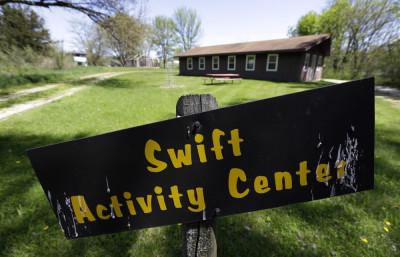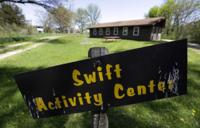Sleepaway summer camp can be a wonderful experience for kids. It gets them out of the pigeonholes they get stuck in at school, giving them a clean slate and an opportunity to grow.
But before these advantages come some obstacles. Camp can be a tough adjustment when meeting new people and taking part in new activities in a new environment.
Parents, particularly those of first-time campers, often find themselves in a similar situation, not knowing what to expect.
These conflicts need to be addressed in a thoughtful, measured manner. Start by talking with other parents who have sent kids to camp. And don't talk to your kid about it; that can make matters worse.
"Kids are incredibly intuitive," said Peg Smith, CEO of the American Camp Association, a camp trade organization at www.acacamps.org. "If they're sensing you're fretful or nervous, one of two things can happen: 'I may want to go to camp, but I'm so worried about you that I need to stay home.' The other thing is they absorb your fear: 'There must be a reason for Mom or Dad to feel like this.'"
Smith said that being a parent means helping a child grow to be independent and resilient.
"They need that to be successful adults," she said. "If I hold my child back from that, I'm holding them back from proper development."
And camp is a perfect venue to foster that self-reliance.
Roger Friedman and wife Roz Beroza are co-directors of Echo Hill Ranch, a residential youth camp in Medina, Texas. Echo Hill, at www.echohill.org, has been owned and run by Friedman's family for more than 60 years. As a psychologist who teaches and has a clinical practice in Maryland, Friedman sees sleepaway camp as an extraordinary opportunity for growth.
"The child has to manage their environment without parents or loved ones helping them," he said. "That is a huge developmental task, and to manage it they have to do things they never do at home."
Here are some tips from Echo Hill Ranch to get parents and children ready for camp:
Preview what camp life will be like. Go to the camp's website and check daily schedules and lists of activities. The more information you can give your child about camp life, the less they will imagine the worst.
Include your child in packing for camp, and ask them to select a few special items to take: family or pet photos, a favorite blanket, a favorite toy or book, etc.
Acknowledge in a positive, confident way that "I am going to miss you, but I know you will have a good time at camp." Share your optimism, not your worries, with your child.
Pre-address and stamp envelopes or postcards and ask your child to write to you twice a week.
Do not bargain with your child by saying things like, "I promise to come and get you if you feel bad." Assure the child that if he or she is really unhappy, they should tell their counselor, and that way all parties can engage and talk about how to make things better.
Ask the camp for names of other similar aged children who are attending camp the same session. You may wish to talk with those parents or let your child meet or talk on the phone to their camper.
Send frequent, upbeat letters. An email every other day or three letters a week is a good plan.












